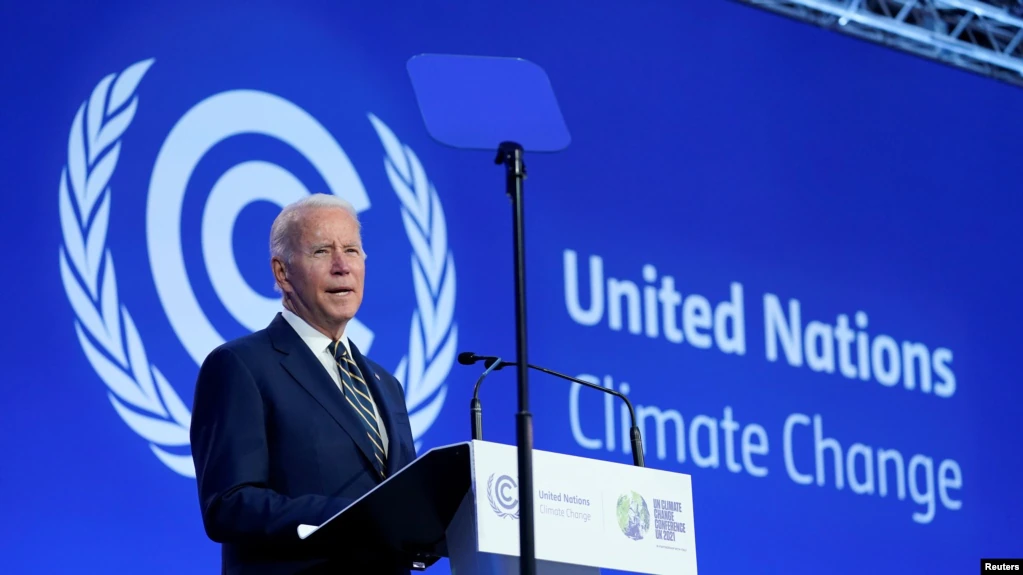Widgetized Section
Go to Admin » Appearance » Widgets » and move Gabfire Widget: Social into that MastheadOverlay zone
World leaders have agreed on “nature-based solutions” to tackle climate change
More than 100 countries around the world have signed an agreement to halt and reverse the crisis of forest loss and land degradation by 2030. Despite dashed hopes of a major breakthrough at the UN climate summit, world leaders have agreed on “nature-based solutions” to combat climate change, environmental policy experts say. Sino-US climate cooperation should start “upstream,” not just “downstream.”
The 26th Conference of the Parties (COP26) to the United Nations Framework Convention on Climate Change (UNFCCC) is on its second day in Glasgow, UK, on Tuesday (November 2). Leaders from more than 100 countries, including U.S. President Joe Biden and Chinese President Xi Jinping, pledged at the summit to halt and reverse deforestation and land degradation by 2030.
Some analysts believe that the Glasgow climate summit reached an agreement to end deforestation, is clearly a significant outcome of the meeting. But some analysts say hopes of a New Deal to slash global greenhouse gas emissions in Glasgow have been dashed by the absence of leaders from Beijing and Moscow, and new Delhi’s pledge is seen as falling short of expectations.
World leaders have agreed on “natural-based solutions” to climate change, environmentalists and public policy experts tell VOA, despite conflicting arguments about their obligations to cut emissions and use of energy.
More than 100 world leaders, including U.S. President Joe Biden and Chinese President Xi Jinping, reached an agreement On Monday to commit to ending deforestation by 2030, with the signatories set to take effect on November 2.
Judith Shapiro, a professor and environmentalist at American University’s School of Foreign Service, called the agreement the “most interesting outcome” of COP26, showing that the international community is moving toward new concepts that emphasize “nature-based solutions,” And shifted the focus of environmental protection efforts to forest conservation and biodiversity efforts.
Although there appear to be several obstacles to reducing fossil fuel use, there is still potential to achieve carbon reduction targets by protecting “carbon sinks”, Xia said, adding that conservation areas, reforestation and Marine conservation will also be important issues at the conference.
The Agreement to Stop Deforestation, signed by more than 100 world leaders, commits countries around the world to work together to halt and reverse the crisis of forest loss and land degradation by 2030. These include trade policies that promote sustainable development and sustainable production and consumption of goods, as well as agricultural policies that commit to or encourage sustainable development.
The world leaders also pledged to significantly increase public and private investment in sustainable agriculture, forest conservation and restoration, and support indigenous communities directly affected by deforestation in parts of the world.


